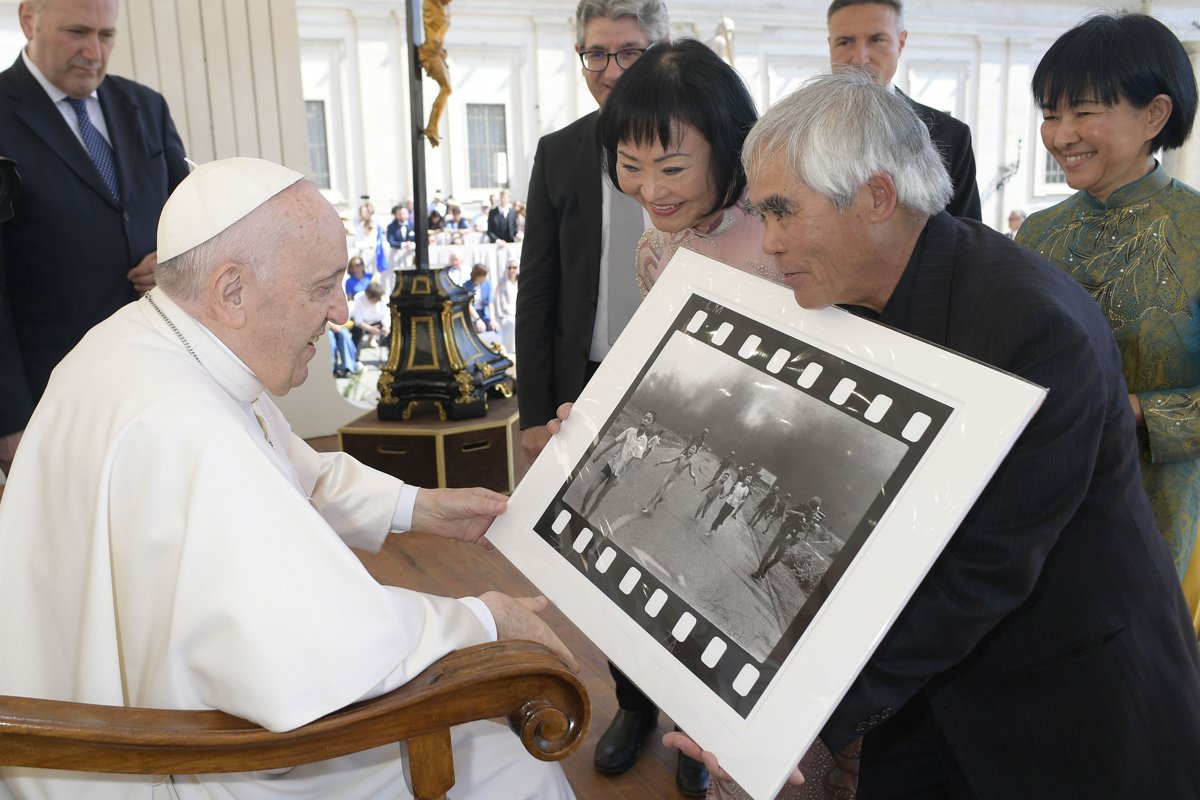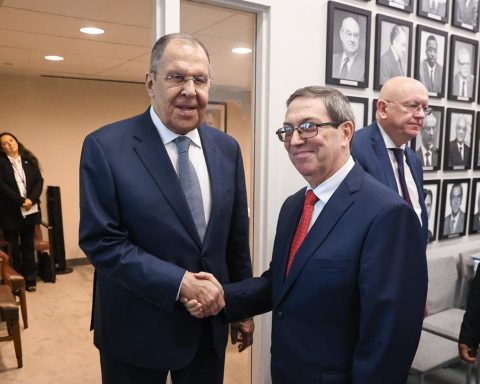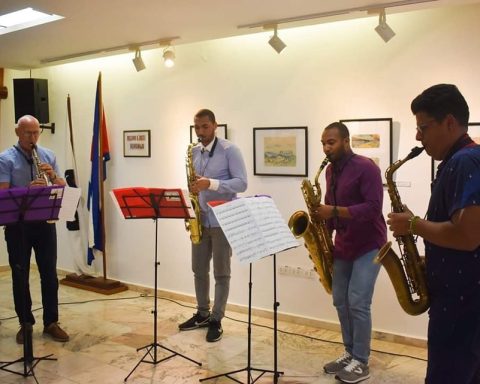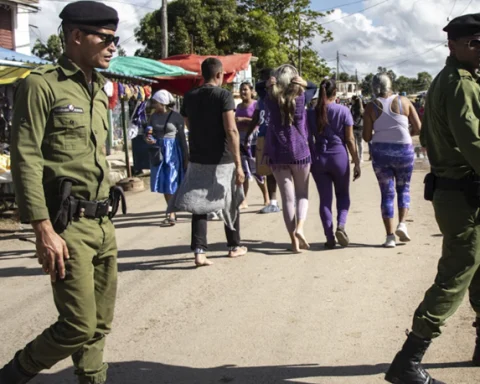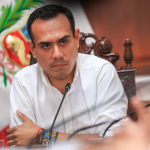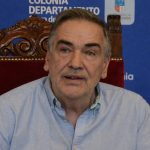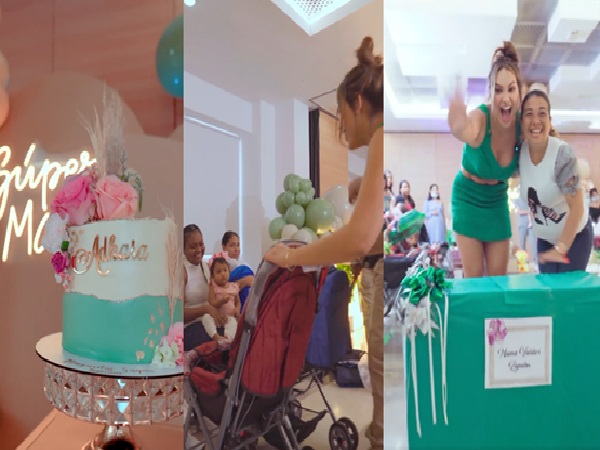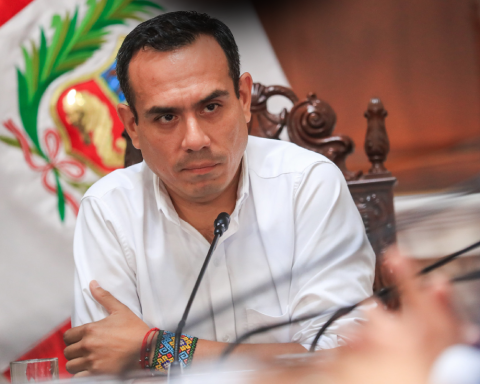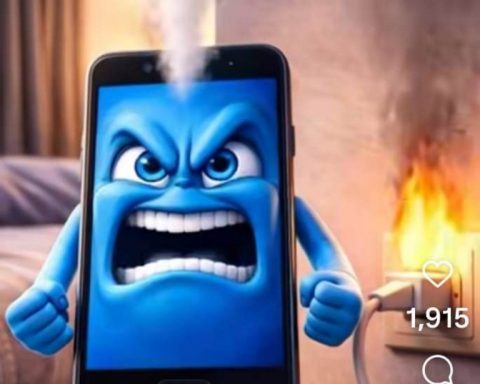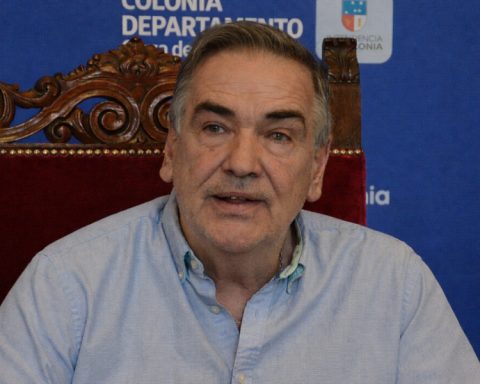Half a century after she was photographed naked, crying on a highway while fleeing a US bombing in a field in Vietnam, the so-called “napalm girl”, Kim Phuc, today a 59-year-old woman, still cries out against all wars.
Such was the iconic power of that photo, taken on June 8, 1972, that it is considered one of the factors that made the Vietnam War more unpopular, precipitating the defeat and departure of the US army a year later.
Marking 50 years of photography, Kim Phuc is in New York to participate in a panel of war reporters along with Nick Ut, the agency’s photographer AP who took the image, although it was not limited to that, but later accompanied her to a hospital to treat her raw wounds.
In an interview with Efe, Phuc speaks calmly about his own tragedy, but he bursts into tears when he thinks about the current wars, and the one in Ukraine in particular: “There is no just war, every war is a mistake, it consists of killing people , making people suffer (…) My heart breaks just thinking about all those who died by my side, and now that this is repeated… I have to say it: No more wars, no more deaths!”
According to Javier Otazu, author of the exchange with Kim Phuc, her story is for a movie: after being burned by US napalm and undergoing 17 interventions to save her, the communist regime in Vietnam took her out of the university – where she was studying medicine – and turned it into a political propaganda weapon against the United States.
In one of those propaganda trips between Moscow and Havana, Kim took advantage of a technical stopover in Canada in 1992 and deserted; he was accompanied by his boyfriend, another Vietnamese man whom he had met in Cuba; together they obtained political asylum and then full citizenship. They have been married for 30 years and are already grandparents.
On several occasions, Kim has described his reconstructed skin as “that of a buffalo”, a rough skin without pores that prevents him from sweating and still gives him pain, but he does not mind talking about it and even showing his extensive scars. She says that she prefers to see her skin “as a reminder that I have a mission, no longer as a victim, but as a survivor, a mother and wife and grandmother who calls for peace.”
Indeed, Kim has spent several decades telling her story – often alongside Nick Ut, the photographer-turned-long-friend – and has created the Kim Phuc International Foundation with the primary goal of healing children who wars leave wounded or orphans. The interview, in fact, takes place on a large screen where the iconic photo of Kim fleeing napalm appears enlarged.
Kim admits that she had a dream, to become a doctor, and although she could not graduate, “I have managed to fulfill my dreams in some way, not healing one by one, but telling my story and helping to relieve other pain, both physical as emotional.
I hate that photo that made her suffer for a long time: “I thought: why did they photograph me like that? She was a naked girl who ran away, ugly, ashamed… However, now I appreciate it: It was a power that was given to me, to change my life. Look at me: I never thought that she would be a Goodwill Ambassador (from Unesco) or that I would be received by the Pope in Rome”, as happened last month.
It is surprising to note that Kim does not hold a grudge against anyone – “not even against the pilot who released the napalm”, he specifies – and has managed to forgive all his enemies. She says that it was the discovery of Christianity that helped her achieve it, but she is very careful not to make any proselytizing comments and points out that this was simply her “personal experience”.
Kim does not mind going back over and over again to the tragedies of her life, because she believes that she has “a duty” to tell everything, knowing the power that the media has, the power to “tell the truth of what is happening and show the new generations the consequences of all wars”.
But lest anyone think that Kim idealizes her life, she makes one thing clear: that if she had the power to go back and change the past, she would simply erase that bombing sequence and choose “the life of a normal girl.”
Efe/OnCuba.
